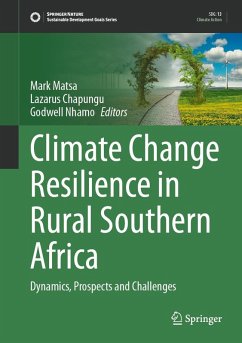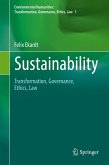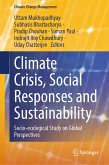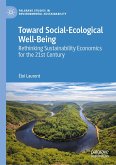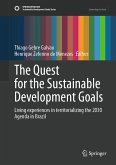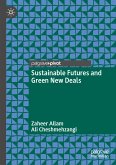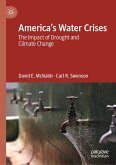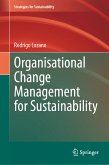In rural Southern Africa, the livelihoods of millions are intricately linked to the land, water, and ecosystems that are increasingly under threat from climate change. This intensifying threat has exacerbated pre-existing vulnerabilities, rendering the need for resilience building more critical than ever. Emerging scholarship on climate change strategies suggest that building resilience in human and environmental systems is the ideal strategy for combating the climate change induced catastrophes. Rural Southern Africa has witnessed both isolated and coordinated efforts by various stakeholders to bolster climate resilience, yielding varying degrees of success. This book offers a comprehensive examination of the rural Southern African landscape, probing the intricate dynamics, prospects, and challenges associated with building climate resilience. It examines how traditional knowledge, innovative practices (including Artificial Intelligence), and sustainable development strategies are converging to create resilient systems. The book further highlights the critical role of local communities in addressing climate challenges and offers actionable insights for a more resilient future. It emerged that some interventions have managed to build resilience of at-risk households, communities and systems, while others have faced significant challenges. In general, climate resilience building remains complex and lagging due to increased vulnerabilities induced by global disease emergencies such asCOVID-19, increased poverty due to global recessions, poor governance, corruption and several other internal and external factors. Therefore, the need to increase cooperation amongst Southern African states to pursue common development goals cannot be overemphasized. Rich with case studies, expert analyses, and systematic reviews, this book is an essential read for policymakers, researchers, and those invested in the future of rural Southern Africa.
Dieser Download kann aus rechtlichen Gründen nur mit Rechnungsadresse in A, B, BG, CY, CZ, D, DK, EW, E, FIN, F, GR, HR, H, IRL, I, LT, L, LR, M, NL, PL, P, R, S, SLO, SK ausgeliefert werden.

